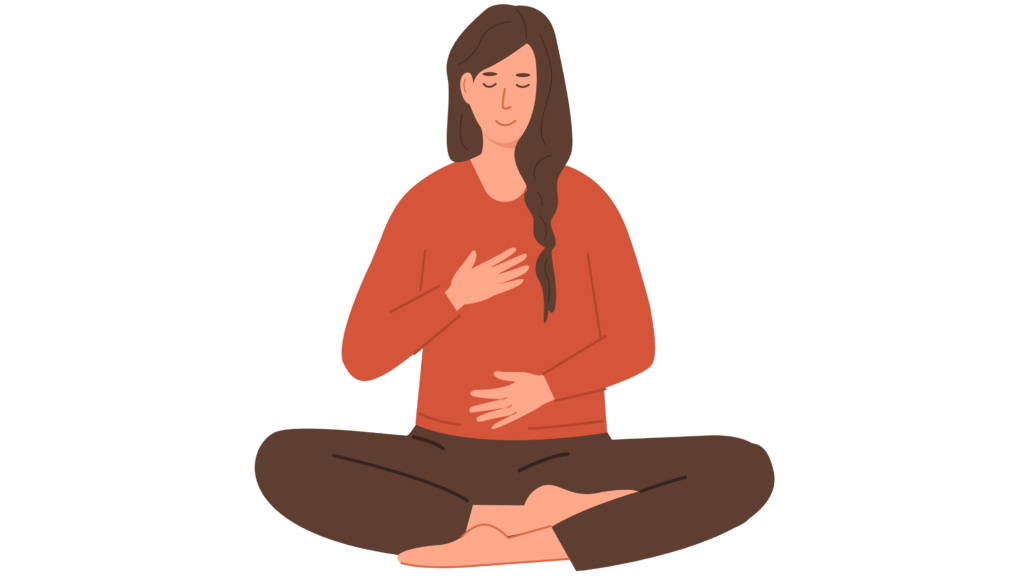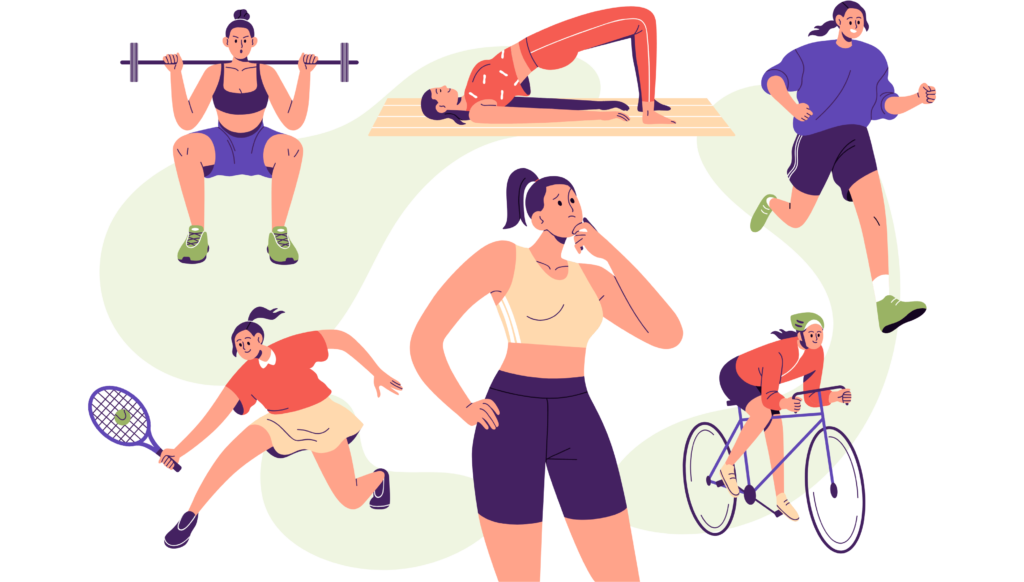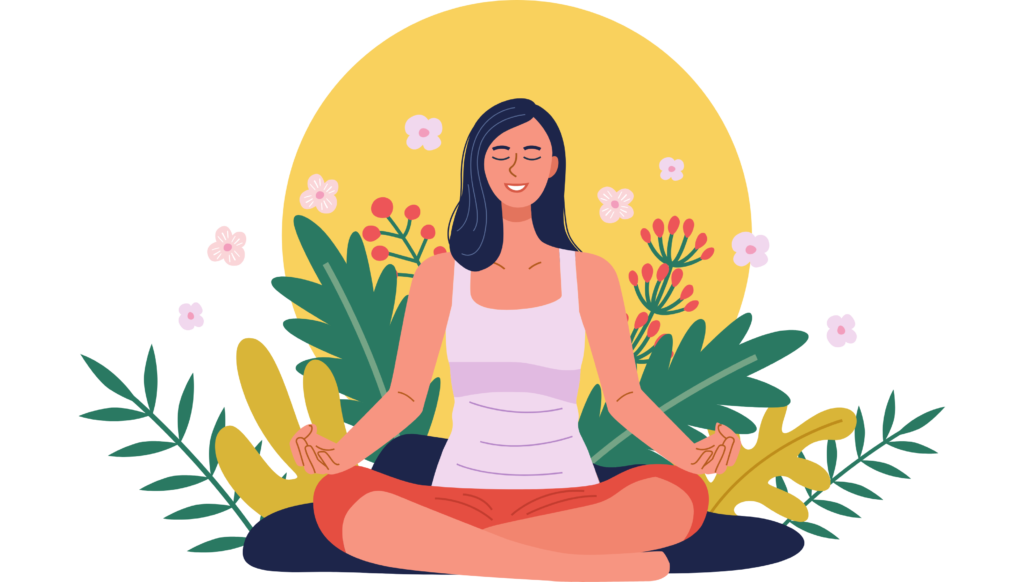Anxiety is a common mental health issue that affects millions of people around the world. While medication can help many individuals, some prefer to explore natural alternatives to manage their anxiety. Fortunately, there are several science-backed strategies to help you cope without medication. In this blog, we’ll delve into seven effective methods to manage anxiety naturally, allowing you to regain control over your life and find peace of mind.
Practice Deep Breathing Techniques

Deep breathing exercises are among the simplest and most effective ways to reduce anxiety. These techniques can help calm your mind and body during anxious moments.
- Box Breathing: This technique involves inhaling for four seconds, holding your breath for four seconds, exhaling for four seconds, and then pausing for another four seconds before inhaling again. This method slows your heart rate and relaxes your body.
- Diaphragmatic Breathing: Focus on breathing deeply from your diaphragm instead of shallow breaths from your chest. Place one hand on your belly and the other on your chest. As you inhale deeply through your nose, ensure that your belly rises more than your chest. This type of breathing activates your body’s relaxation response.
Why It Works: Deep breathing reduces stress hormones and increases oxygen flow to your brain, helping to ease anxiety symptoms and improve your mood.
Engage in Regular Physical Activity

Exercise is a powerful natural anxiety reducer. Physical activity releases endorphins, the body’s natural mood lifters.
- Types of Exercise: You don’t need to hit the gym every day to reap the benefits. Simple activities like walking, jogging, dancing, or practicing yoga can significantly reduce anxiety levels.
- Aim for Consistency: Try to get at least 30 minutes of moderate exercise most days of the week. The key is to find an activity you enjoy, as this will make it easier to stick with it.
Why It Works: Regular exercise helps lower stress hormones, improves sleep, and boosts self-confidence, all of which can help mitigate anxiety.
Practice Mindfulness and Meditation

Mindfulness and meditation practices can help you stay present and reduce anxious thoughts.
- Mindfulness: This involves paying attention to your thoughts and feelings without judgment. You can practice mindfulness by focusing on your breath or engaging in activities like eating or walking.
- Meditation: Set aside a few minutes daily for meditation. Find a quiet space, close your eyes, and focus on your breathing. Apps like Headspace or Calm can guide you through meditation sessions.
Why It Works: Mindfulness and meditation reduce anxiety by helping you detach from negative thoughts and promoting a sense of calm and clarity.
Connect with Nature
Spending time in nature can significantly impact your mental well-being.
- Nature Walks: Go for a walk in a park or forest, or simply sit outside and enjoy the fresh air.
- Gardening: Engaging with plants can also reduce stress and promote relaxation.
Why It Works: Nature exposure lowers stress hormones and promotes feelings of happiness. The sights and sounds of nature can help distract from anxious thoughts and ground you in the present moment.
Limit Caffeine and Sugar Intake
Caffeine and sugar can contribute to increased anxiety levels, making it essential to monitor your intake.
- Caffeine: This stimulant can increase heart rate and contribute to feelings of anxiety. Consider reducing or eliminating coffee, tea, and energy drinks from your diet.
- Sugar: High sugar consumption can lead to blood sugar spikes and crashes, which can affect your mood. Try to opt for a balanced diet rich in whole foods, fruits, and vegetables.
Why It Works: Reducing caffeine and sugar can help stabilize your mood and reduce anxiety symptoms, allowing you to feel calmer throughout the day.
Establish a Sleep Routine
Sleep and anxiety are closely linked; poor sleep can lead to increased anxiety, while anxiety can disrupt sleep patterns.
- Create a Sleep Schedule: Try to go to bed and wake up at the same time every day, even on weekends.
- Sleep Hygiene: Create a relaxing bedtime routine. Avoid screens, caffeine, and heavy meals before bed. Consider using calming techniques like reading or taking a warm bath to help signal to your body that it’s time to wind down.
Why It Works: Adequate sleep is essential for emotional regulation and helps your body recover from stressors, making it easier to manage anxiety.
Seek Social Support
Connecting with friends and family can provide emotional support and help you cope with anxiety.
- Talk it Out: Sharing your feelings with trusted individuals can lighten the emotional burden you may carry.
- Join Support Groups: Engaging in support groups, whether in-person or online, can help you connect with others facing similar challenges.
Why It Works: Social support provides comfort, understanding, and encouragement, which can help buffer against anxiety and improve mental health.
Conclusion
Managing anxiety without medication is entirely possible with the right strategies. By incorporating deep breathing, regular exercise, mindfulness practices, nature exposure, and social support into your daily routine, you can take control of your mental health. Remember that finding what works for you may take time, so be patient with yourself. As you implement these practices, you will likely notice a gradual reduction in your anxiety levels, leading to a more peaceful and fulfilling life.





